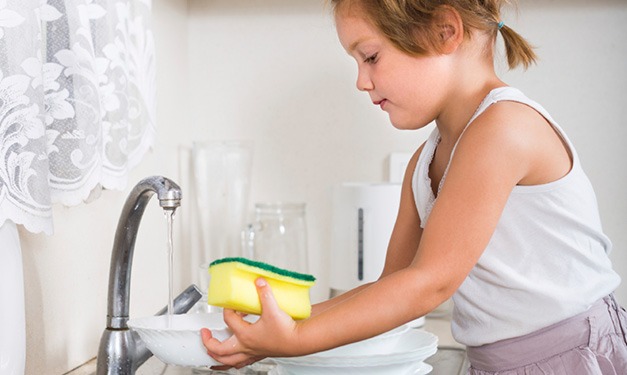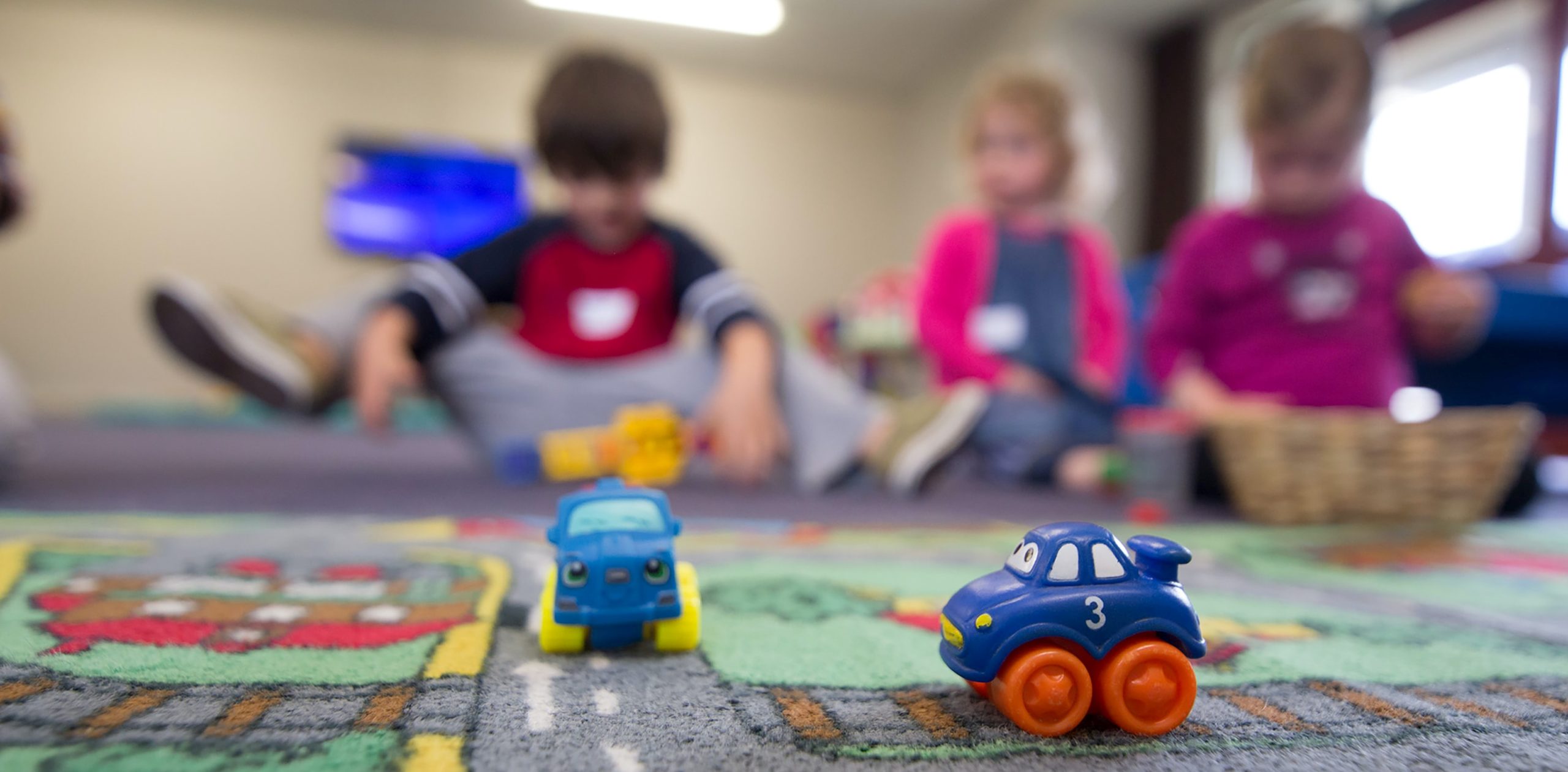by rossanahead | Apr 17, 2011 | career, children, Gina Abuyuan, parenting, woman
By Gina Abuyuan
I would probably now own a Mac Air, have a year’s worth of rent paid, and a lilac Gucci handbag made of the most sublime, buttery leather if I were paid a peso every time I’ve been told/asked:
* “I-feature mo naman ako,” (“Can you do a feature on me?”) when people learn I edit a magazine (well, when I did);
* “Masakit?” (“Did it hurt?”) when they see the tattoo on my wrist; and
* “May lahi kayo?” (“Is it in your genes?”) when people learn I have twins.
And I would probably be now driven around in a mini-van if I gave myself a peso every time I promised myself: “I will not get dramatic about my being a working mom”—and broke it.
Don’t get me wrong—I love being a working mother. I love the adrenaline and challenge it gives me; I love being paid for what I love to do. But sometimes, the stress gets the better of me. I retreat into my selfish, self-centered world and resent the fact that other people (my sister, for instance, who I love dearly, again please don’t get me wrong) have got it easy: their husbands bring home bacon (a full slab at that!), all they’ve got to worry about is the kids’ baon, bring them to and pick them up from school, and make sure dinner is ready when hubby arrives.
But is it really that easy? I once was left sans yaya, when my twin boys were still babies, and a whole day taking care of them left me more sapped than 48 hours putting my then-magazine to bed. I marvel at the energy of my partner’s ex-wife, B, who’s chosen to be a homemaker to her current husband and two daughters. She’s up at dawn, cooks the family’s meals, drives the kids to school, hangs out in the mall while waiting for them to get out of class, drives them back home, takes care of her husband, and drives them to extracurricular activities during the weekends.
One time, when we were corresponding about her son’s schooling and she had missed an e-mail or two, she was profuse in her apologies. She was so busy, she said, but probably not as busy as I was, an editor. I stopped her right there. No way, I told her. It’s OK. Nothing can be busier than a full-time mom and homemaker.
So, yes, I do get emotionally frayed sometimes, especially when deadlines are piling up, editorial assistants are calling, and texting non-stop to follow up on stories, book clients are asking (“but no pressure! Just asking!”) if the copy is ready, and public relations practitioners are requesting for interviews “at the most convenient time.”
But, as I remind myself, that just like B and my sister, I made a choice. I made a choice to be a working mother. Not just a 9 to 5 pencil-pusher, mind you, but the type of worker who needs to hustle and have the ability to speak/write/understand different voices. Sure, I can un-make that choice, but that will mean going against who I am, what I was meant to do, and what I’m happy doing–occasional dramatics notwithstanding.
by rossanahead | Apr 1, 2011 | children, Gina Abuyuan, parenting, woman
By Gina Abuyuan
In my most recent post, I listed down qualities or “practices” that solo parents may be doing to be raising pretty well-rounded and well-grounded children. Aside from showing them—inadvertently or advertently—a more “real” view of the world, and teaching them to be more responsible and understanding, solo parents somehow also produce more conscientious children. Whether this is a reaction rooted in guilt (since the child sees the parent having to exert double the effort in everything), I don’t know. I’m no psychologist, so this can all be attributed to observation.
One of the areas I see this trait in is money and material possessions. Even with the world at his feet and everyone around him eager to make up for his lack of a mother via gifts or cash, J, my partner’s son, shrugs it off. I’ve heard him say more than once, “I have enough.” Sometimes we even have to force him to think of things for us to buy him when we go abroad or even to the supermarket. Once, when I brought him an assortment of potato chips, he asked me whom they were for. His reason? He didn’t ask for them, so they must be for somebody else.
I still have yet to encounter a problem with him going overboard his budget. Since he’s already in college, his allowance is substantially higher than his half sisters (on his mom’s side), and his would-be stepsister and brother (on his dad’s side, through me). That’s not to say he scrimps, but it’s apparent he’s a smarter spender and saver than most 20-year-olds with their own car and access to a bank account.
I see the same cautiousness about finances in my daughter. It’s not that she doesn’t want anything, but saving up and spending for something she lusts after is second nature to her. Three years ago, at 10 years old, she saved her Christmas money to buy a Mac optical mouse worth P3,000. The year after that, she bought her own Skullcandy earphones. This year, after selling her first wave of silicone ballers (and paying what she owed me in full the very moment she could), she bought her own DS, and treated herself to a few pieces at Forever 21. (It made me think—what was I doing when I was 13? Lying in my bed daydreaming about Duran Duran, that’s what.)
So what did my partner and I do—aside from triggering in them a certain sense of responsibility due to our situation—that made them more careful about money than normal? Here’s what I think:
* We encouraged piggy banks or money jars at an early age. I prefer a transparent jar so kids can see how much is being saved. Let them lift the jar from time to time to see how heavy it’s getting. Take a few coins out to buy some candy to show them the concrete relation between money and a product. (I haven’t opened bank accounts for my kids yet, but my partner has. Maybe I should soon.)
* Make them earn it. I didn’t do the “do your chores” bit, since I believe kids should pitch in without getting paid; besides, with what my daughter earns with her ballers, you think she’d even want to wash the dishes for P50? Nah. When my daughter said, “I want to earn money,” I asked her to figure out what she was good at, and make money from that. She’s quite adept at graphic design, so boom. Ballers. Next up: bags and shirts.
* I keep my kids’ money gifts, but when we go out and they see something they like, I remind them about the amount that’s with me. I ask them to think twice about whether they want to blow all of it on that certain product, or if they can live without it, or if they’d like to look around more. It discourages impulse buying.
* We’re careful about our own attitudes about money, and how they might influence the kids. We’re generous when we can, we’re honest about tightening the belt straps if need be. Eating in Mang Larry’s in U.P. doesn’t mean we can’t have as a good time if we eat in Burgoo’s. We don’t like swiping the card, and my partner has illustrated to my daughter and to his son the horrors and problems of people mired in debt. We never say “money is the root of all evil,” because money can be good—it just depends on how you use it. I’m particularly sensitive about the phrase “wala akong pera” because that creates waves of energy that will make it a self-fulfilling prophecy, so I call my daughter’s and partner’s attention whenever I hear that. We also like to point out stuff in the news—the AFP scandal, for instance—and use them as opportunities to remind them that stolen money or ill-gotten wealth means you’ve deprived other people of their due, and it’s likely to come back and bite you nastily in the ass.

by rossanahead | Mar 29, 2011 | children, Lyra Pore, parenting, woman
By Lyra Pore
Getting my kids to clean their bedrooms has been a hit-and-and miss affair in our household. I’ve tried giving direct orders: “Clean your room.” It doesn’t work. I’ve tried praising the merits of tidiness: “Isn’t it awesome?” It doesn’t work. After several years of experimentation, I’ve found two things that do work.
I’ve only written the first paragraph of this blog when I had to leave the computer to get the table ready for breakfast. I come back after a while to find this list typed into my draft:
- Give them chocolate.
- Pay them lots of money.
- Give eldest daughter a unicorn.
- Give eldest daughter books.
- Take eldest daughter to Harry Potter theme park.
- Give eldest daughter an iPad.
Nice try, eldest daughter, but these are the tricks that actually do the job:
TRICK NO. 1: Grab a large garbage bag and announce to the children: “I’m going to clean your rooms. Everything I pick up on the floor will go into this bag and get chucked in the bin.”
It doesn’t matter whatever’s keeping them busy at the moment. Selena Gomez could very well be doing the most amazing thing on Wizards of Waverly Place, but they drop everything at the sight of the black garbage bag and run to their rooms as fast they can. They know our ever-reliable garbage collector never misses his weekly run.
TRICK NO. 2: Invite their friends to come to the house.
Two weeks ago, one of their classmates rang around 11:00 in the morning.
“Can I come over to play?”
“What time?”
“11:30?”
“Mom, is that OK?”
“Yes. But make sure you tidy up. You know I don’t like showing other people our mess.”
As soon as she hangs up the phone, she and her sister run around the house picking up toys and other litter. In less than half an hour, they have the house–not just their bedrooms–looking sparkling clean.
Ha! You bet I’ve been on the phone today organizing play dates with other moms.
“Hi! I was wondering if I could invite your little girl to come play at our house this weekend.”
“Thank you! That’s wonderful. She’d love to come.”
Featured Photo Courtesy of Metro Parent

by rossanahead | Mar 28, 2011 | children, Education, parenting, woman
By Bubbles Salvador
The terrible twos can be, well, terrible. This I know because my son, only almost two, is worlds away from that cute little baby who always did as Mommy or Daddy said.
It’s not that he’s out of control – he’s just too much to handle sometimes.
Luis behaves very well in church, and is able to sit through the entire mass. At night, we say our prayers together, which he ends with a sweet “Good night, God!” He even surprises me with an affectionate hug every now and then.
But there are also times when the terrible twos hits like the plague. When he refuses to share a toy or greet an elder (we insist on the age-old tradition of pagmamano), it could result into a riot: Mommy is screaming, Daddy is demanding obedience, Luis starts whining.
“It’s a phase,” my Mama said. Should I believe her? She instilled enough fear in me and my siblings to make sure that none of us even thought of misbehaving like that. What did she know about terrible twos?
“Just keep telling him that what he’s doing is wrong. It’ll take a while but he’ll get it. Luis is smart,” she told me.
Maybe Mama’s right after all. “Smart” may be the key word. At times, even before we send him to the corner for a timeout, Luis would go there himself and say, “Stay…corner. Mommy’s mad.”
It is exactly this smartness that we are counting on so we can finally get past this stage. He can recite the rules anytime: “No hitting. No throwing toys. Good boy lang.” I think we’re getting there.
I guess part of being a parent is hitting these highs and lows; we just try to make the most out of the highs. Just as we need to encourage our kids’ positive behaviour, we also need to give ourselves a pat on the back for trying (and just keep our fingers crossed that things turn out OK!).
Photo by MI PHAM on Unsplash

by rossanahead | Mar 14, 2011 | children, Education, woman
By Bubbles Salvador
My son is barely two and people have been asking me, “Where are you sending Luis to school next year?”
I remember very little about my preschool years but I do know that I was only in a kindergarten class before I went to first grade. I didn’t even attend nursery class like most of my classmates did. Although I didn’t graduate a cum laude from college, I think I’m okay.
So you understand the baffled look on my face when people would ask me that question. “But he’ll only be three!” I’d say. And then sometimes I would get these mortified looks that seem to say, “Que horror! You mean you’re not sending your son to playschool?”
I know of moms who sent their kids to school at two years old, and the kids are turning out to be brilliant. On the other hand, a guy I know only went to preparatory class before first grade, and he placed tenth in the medical board exams after college. I think the cliché “case to case basis” applies here.
So what will it be for Luis? The truth is, I don’t know. Yet. It seems horrible for a parent not to have any plans for her child’s education. But the question of whether we are sending him to playschool at three years old is something my husband and I are still mulling over.
There’s this mom I know who started home schooling her son when he was three, before she sent him to a regular preschool. I have to say that this is a tempting, not to mention a very inexpensive, option. I heard that the tuition fee in playschools could run up to a hundred thousand per year.
Oh, but lucky for us, we have one more year. How about we wait and see?
Photo by BBC Creative on Unsplash

by rossanahead | Mar 8, 2011 | children, family, parenting, Ruth M. Floresca, woman
My name is Ruth Manimtim-Floresca, a work-at-home mom who contributes articles to Philippine print and online publications. I feel blessed that I am able to earn from what I enjoy doing and which come with flexible work hours. This allows me to spend more time with my family and primarily care for my son with special needs.
I have four boys aged 12, 13, 15, and 17. Daniel, my youngest, is in fifth grade; Joshua, my second son, is a high school junior; and Geffrey, our firstborn is a college freshman taking up Digital Media Arts. James, my third child, has spastic quadriplegic cerebral palsy. He can’t talk or walk but he has already taught our family so much about love, patience, and faith for the past 13 years, and counting.
Although our household can be noisy at times, they are mostly happy sounds. Sure, the three boys argue over computer schedules and who’s going to wash the dishes or feed the dog every now and then. But when we ask them to take care of their brother while their dad and I go out to do errands, buy groceries, or attend meetings and media events, they can be trusted to do that job well.
We have been maid- and yaya-free for the past three years and we’re doing fine. Honestly, I feel more confident now when leaving the house with only the kids there than having someone else look after them. I believe our circumstances have taught my boys to be more resilient and independent. Like their dad, whom I so appreciate for being hands-on, I hope our kids would also become thoughtful husbands someday who won’t expect their wives to do everything around the house.
I may feel overwhelmed and utterly exhausted with house chores and writing deadlines most of the time, but I wouldn’t trade places with anyone else. I am grateful for where, and who, I am now.–Ruth Manimtim-Floresca
Photo by Joshua Harris on Unsplash




